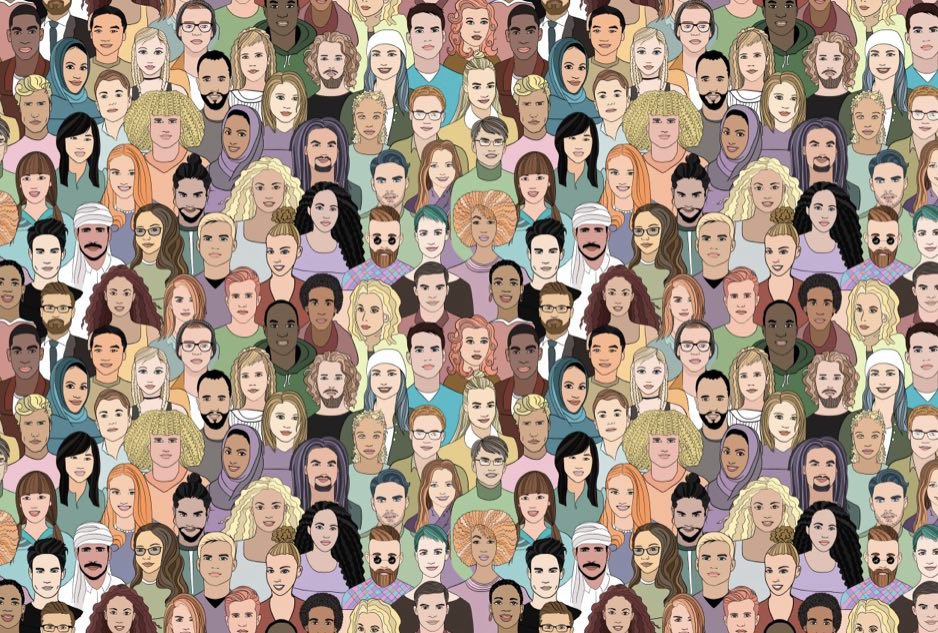The role of social forces in society
The role of social forces in society, according to Iran Gate’s report, has significant implications in the fields of sociology, political science, and political sociology. Scholars in these fields often make extensive use of this concept.
Social forces are essentially a political concept, or more precisely, a socio-political concept. However, what exactly does this term refer to? In political sociology, which is the intersection of sociology and political science, the realms of society and government are distinguished from each other. The term ‘government’ refers to the political system.
Social forces are essentially forces that exist outside of the government and strive to align government policies and actions with their own interests. They influence the government and are also influenced by the government. According to the definition of political sociologists, social forces can be distinguished from each other at three basic levels: movement, influence, and infiltration.
Social forces are considered to be composed of different layers and strata. For example, the working class or the women’s movement also shape the level of social movement. For instance, the labor movement or the women’s movement, as well as political parties and civil organizations, are referred to as the level of influence of social forces. Examples include labor parties or women’s rights organizations.
Another example is the new middle class, which is a social force at the grassroots level. The student movement represents the level of movement of this social force. Political parties advocating for the interests of the middle class, often liberal and democratic parties, form the level of influence of this social force.
If a labor party or a liberal party enters the government and succeeds in appointing their own political representatives to the government, then the working class and the new middle class have become part of the government. In this case, these classes are no longer just a social force that puts pressure on the government.
Karl Marx believed that the government in capitalist societies is nothing more than an executive committee of the bourgeoisie. His claim was that the working class can never be part of the government in these societies. Therefore, he recommended a revolution against the capitalist government to the workers.
However, when the working class movement emerged from the heart of the working class and then the parties defending the interests of the workers formed and these parties succeeded in gaining all or part of the political power, the workers no longer saw themselves as another social force that could be a reason for revolution, because this social force had already acquired the power to act politically, which meant legislation and distribution of benefits.
Or in Iran, in the past two decades, the new middle class had its own movements, organizations, and political parties during the presidencies of Khatami and Rouhani, and its behaviors and slogans were not radical. However, in the current circumstances where its political representatives are not present in the government, its behaviors and political slogans have become radical.
The main difference between the protests in December 2017 and November 2019 compared to the protests in 2002 was mainly the stronger participation of the new middle class in the recent protests. The reason for this difference is nothing other than the fact that the new middle class, which was the most influential social force in the formation of the Khatami and Rouhani governments, naturally had no inclination to take to the streets against a government that came to power through its own votes.
Among the organizations related to the new middle class in Iran, we can mention the Islamic Iran Participation Front Party or the Journalists’ Trade Union. The Journalists’ Trade Union is inherently associated with the influence of the new middle class, meaning that it defends the interests of a significant portion of the new middle class journalists against the government. In this regard, it puts pressure on the government in a civil manner. In fact, if the media outlets are not affiliated with the government, they are part of the social forces. Therefore, it is natural for them to advocate for the people’s demands and be the voice of the people.
However, the Participation Party was part of the government in the sense of the political system until it was dissolved. Although it was removed from the executive power, it still had a few representatives in the Islamic Consultative Assembly. Similarly, the Labour Party in Britain, even when it did not have the cabinet, still remained part of the political system with numerous representatives in parliament. Therefore, this party has always been the political representative of the British workers in the past hundred years and has never transformed into a political party outside the structure of the political system.
However, numerous examples in the history of Western Europe in the 20th century show that green parties were active as parties outside the executive and legislative powers, and they merely represented the third level of influence of a social force called environmentalists.
Furthermore, although women have played an influential role in policy reform through the women’s movement in many countries around the world, they have not established their own specific political party in almost any country. Therefore, women have created a grassroots force within the women’s movement and have focused on the third level of social forces, namely civil society organizations, without venturing into the establishment of a political party.
In fact, labor movements have led to the establishment of labor parties, but women’s movements have not led to the establishment of women’s parties. Similarly, student movements have not led to the establishment of student parties. The reason for this is likely that parties generally have a class nature, and women, as students and employees, ultimately belong to a social class and, if they choose to participate in elections, tend to vote for political parties of that class.
Social groups usually have their own civil organizations and exert influence on the government through social movements. Their protests manifest in the form of social movements such as the women’s movement, student movement, and protests by teachers, drivers, and pilots.
In other words, some social forces do not seek to establish a political party or seize executive power, although they may have representatives advocating for their interests within political parties or within the governing power.
In summary, in any society, different groups of people, such as women or the working class, may create social movements and form organizations to exert influence on the political system in order to achieve their demands. These organizations sometimes become political parties and find their way into the political system, making the political representatives of that particular social force within the government structure.
Regardless of whether civil organizations outside the political system or parties that have entered the political system, they all act as defenders of the interests of social forces that have created them. This process reflects the manner in which social forces are politically active and influential.
English
View this article in English


